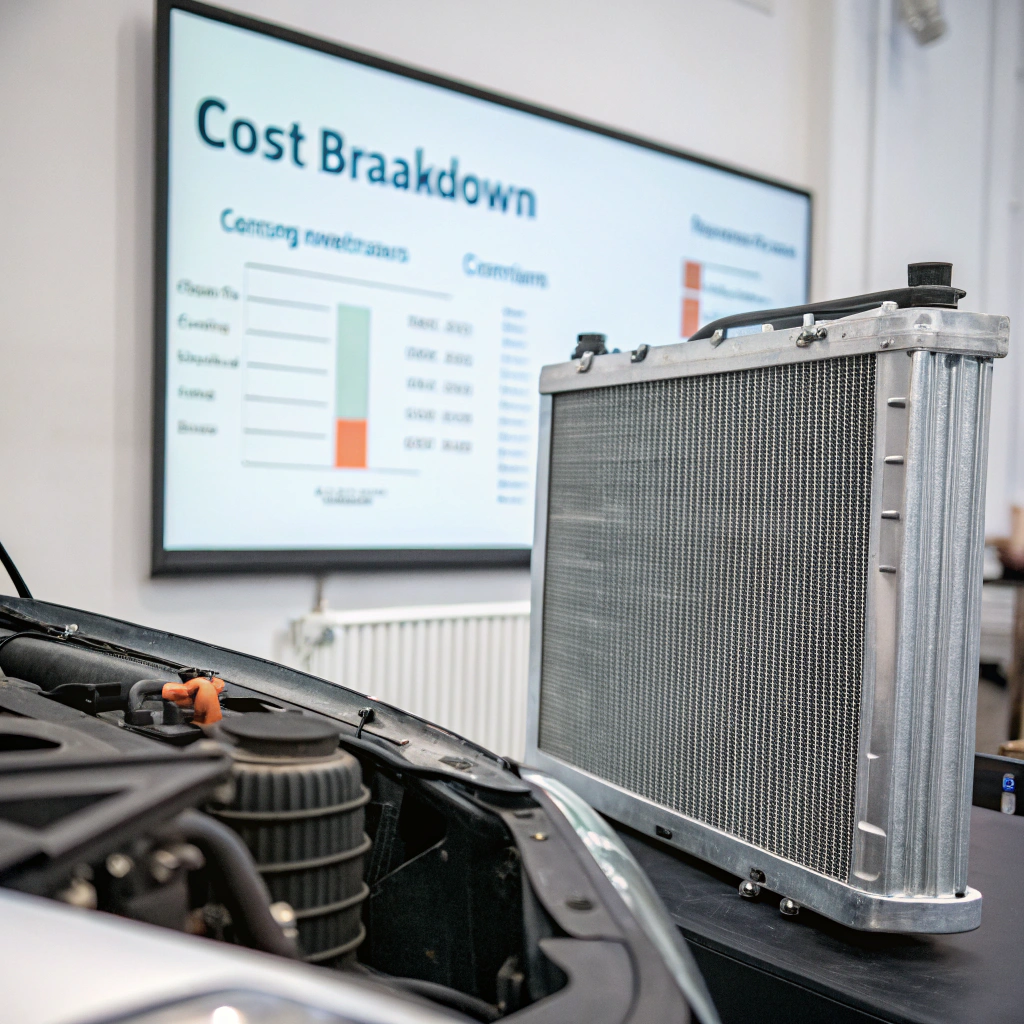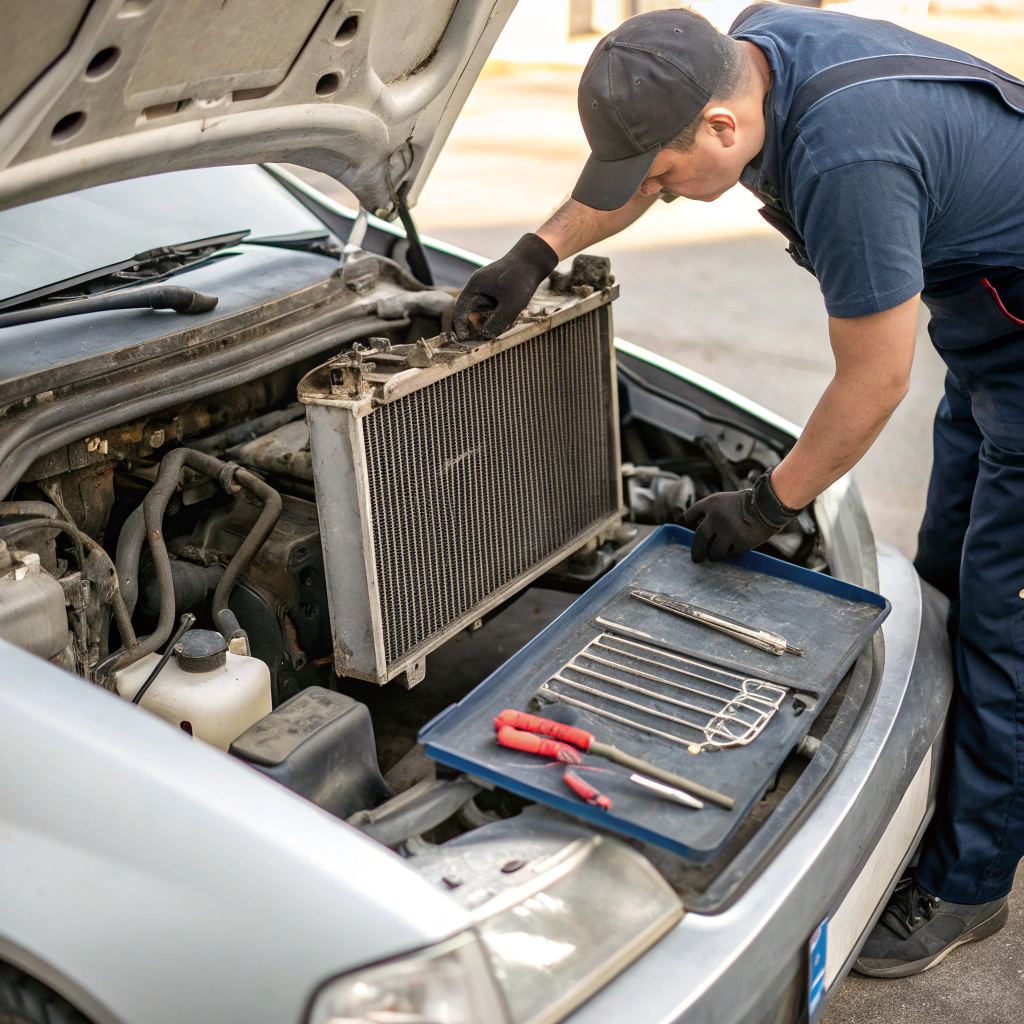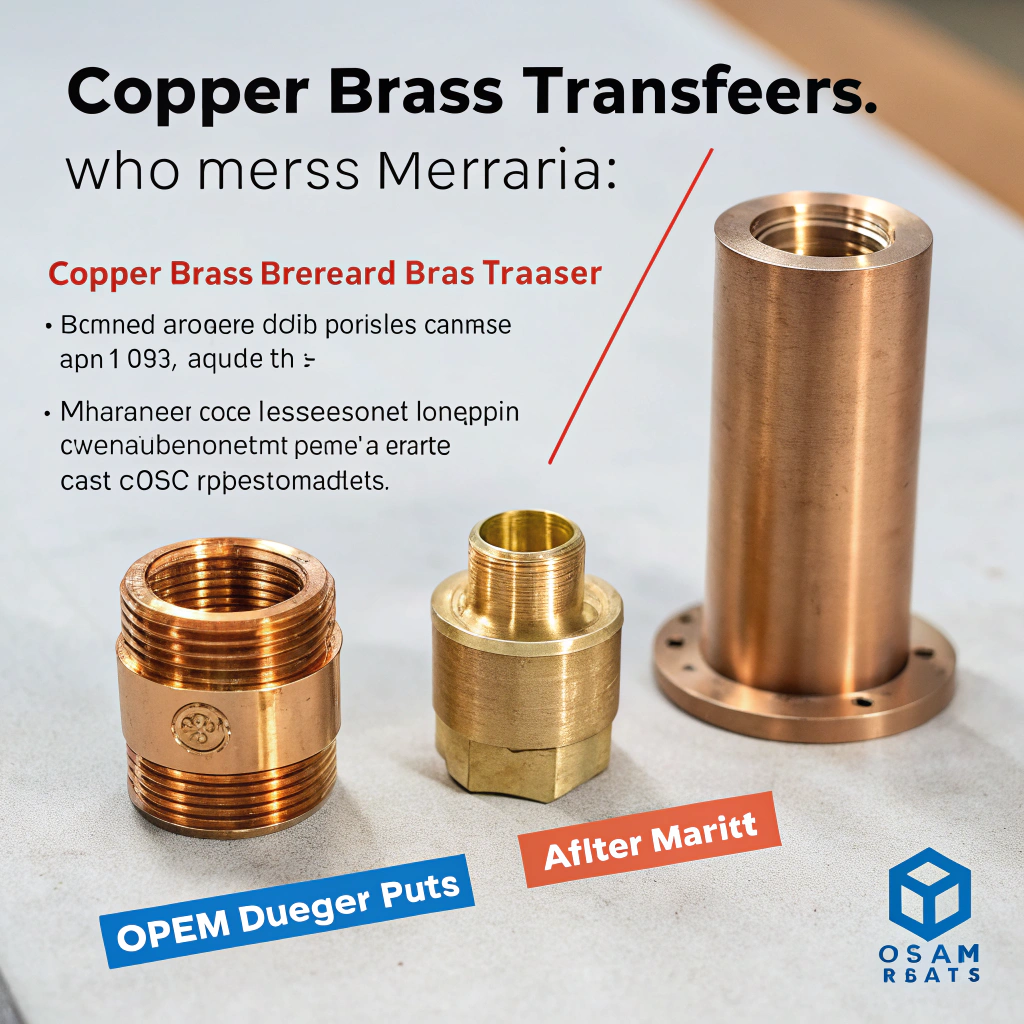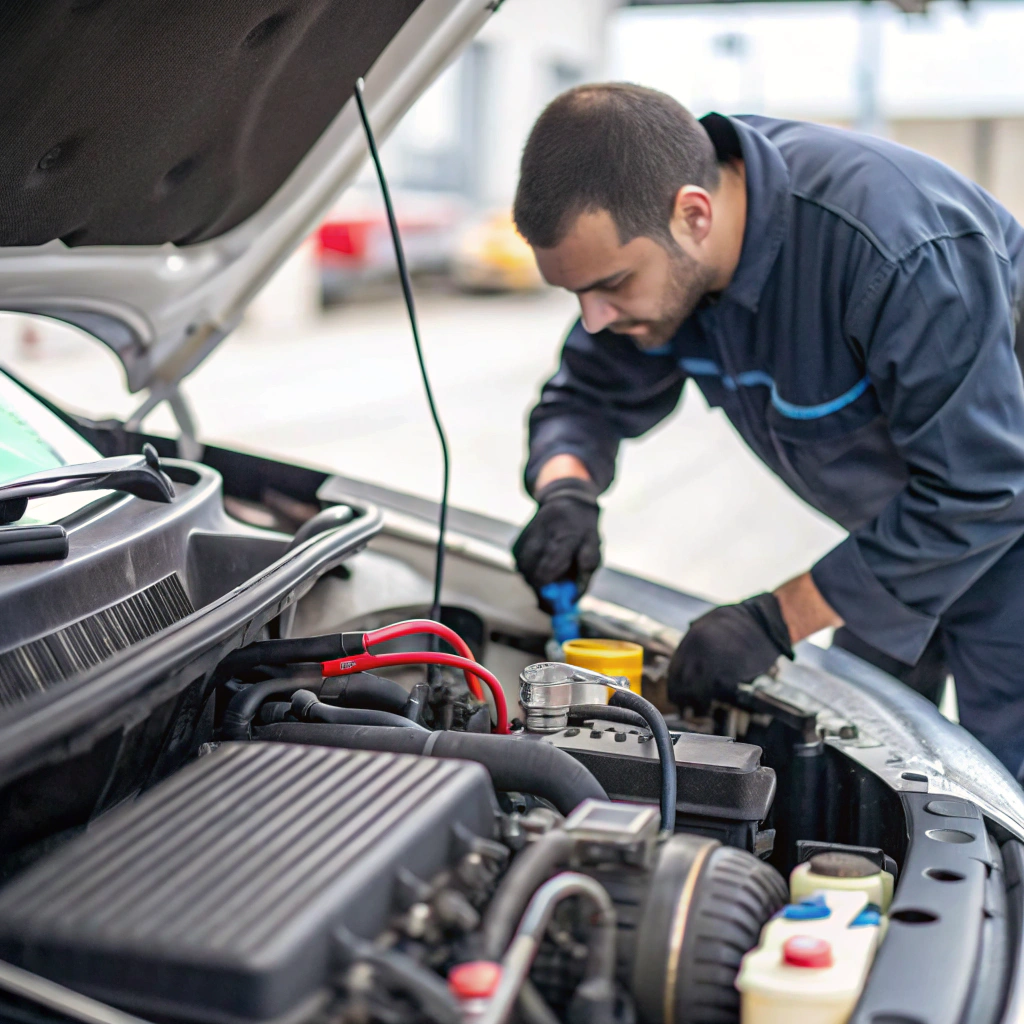What’s the real cost of replacing a car radiator?
A few years ago, I paid over $1,200 to replace a radiator. Turns out, I could’ve saved hundreds if I had known what drives the cost.
The cost of replacing a car radiator usually ranges from $700 to $1,500, depending on parts, labor, vehicle type, and damage severity.
If you’re facing radiator issues, here’s what really affects the price—and how you can save money without compromising your engine’s health.
What is the average cost of a radiator for a car?
Many people assume all radiators cost the same. They don’t.
The average cost of a new car radiator (part only) ranges from $100 to $600, depending on vehicle type and radiator material.
A compact sedan might only need a $150 part. A luxury SUV could require a $700 OEM radiator. If your car is rare or uses a performance system, expect to pay even more.
Radiator price by vehicle type
| Vehicle Type | Average Radiator Cost |
|---|---|
| Compact Car | $100 – $300 |
| SUV / Truck | $250 – $600 |
| Luxury / Sports Car | $400 – $1,000+ |
Radiators for sports cars usually cost more than those for economy cars.True
Performance and luxury vehicles often require specialized, higher-capacity radiators.
All radiators cost about the same, regardless of vehicle type.False
Radiator costs vary widely based on vehicle size, brand, and cooling needs.
How much does radiator replacement labor cost?
I’ve spoken to multiple mechanics, and while their hourly rates vary, their process is fairly consistent.
Radiator replacement labor typically costs $250 to $400, depending on the shop rate and vehicle accessibility.
Most jobs take 2 to 3 hours. If your car has a tight engine bay, electric fans, or special coolant systems, it might take longer—and cost more.
Labor rate insights
- Independent shops: ~$90–$120/hour
- Dealerships: ~$130–$200/hour
- DIY: $0 but includes your time, tools, and risk
If you live in a high-cost city, labor could easily hit $500 or more. Always ask for an estimate and breakdown.
Radiator replacement usually takes 2 to 3 hours of labor.True
Most standard cars allow for radiator removal and installation in under three hours.
Labor for radiator replacement always costs less than $100.False
Labor typically exceeds $100, even at low-rate shops.
What factors affect the cost of a new radiator?
Not all radiators are built the same. Here’s what really drives the price up—or down.
The main cost factors are radiator size, material, vehicle type, labor complexity, and whether other components also need replacing.
Detailed breakdown
-
Vehicle type and engine size
- Larger engines = larger radiators
- Sports cars = more cooling capacity
-
Material used
- Aluminum is affordable, lightweight, and standard
- Copper-brass transfers heat better but is heavier and pricier
-
OEM vs aftermarket
- OEM (Original Equipment Manufacturer) parts cost more
- Aftermarket parts are often cheaper but may not fit perfectly
-
Core design
- Single row vs dual or triple row radiators
- High-performance models have larger surface areas
-
Associated parts
- Coolant hoses, clamps, fan shroud, sensors, thermostats
- A full cooling system repair could double your budget
-
Labor complexity
- Radiators buried under covers and supports take longer to access
- More disassembly = more labor time
Comparison table
| Factor | Low Cost Option | High Cost Option |
|---|---|---|
| Material | Aluminum | Copper-Brass |
| Brand | Aftermarket | OEM |
| Fitment | Easy access | Tight space / complex mounts |
| Vehicle Type | Compact Sedan | Turbo SUV or Sports Car |
Aluminum radiators are generally cheaper and more common than copper-brass ones.True
Aluminum is lighter, easier to mass produce, and dominates the modern market.
Radiator replacement costs are only affected by the part price.False
Labor, vehicle design, material, and other parts also influence total cost.
Is it cheaper to repair or replace a radiator?
I’ve tried both—repair and full replacement. Sometimes patching works. Other times, it’s a waste of money.
Repairing a radiator may cost $250–$750, while replacement ranges from $700 to $1,500+.
When repair makes sense
- Minor leaks
- Small cracks
- Newer radiator
When replacement is better
- Corroded or brittle metal
- Multiple leaks
- Overheating engine
- Plastic tank separation
Table: Repair vs Replace
| Situation | Recommendation | Why |
|---|---|---|
| Pinhole leak | Repair | Cheap fix, especially if recent |
| Heavy corrosion | Replace | Likely to fail again soon |
| Overheated multiple times | Replace | Internal damage may not be visible |
| New radiator failed early | Repair (maybe) | If under warranty, replace for free |
Repairing a radiator is only a good idea for minor leaks or surface cracks.True
If deeper or internal damage exists, repair becomes unreliable.
Replacing a radiator always costs less than repairing it.False
Repairs are often cheaper, but may be temporary solutions.
How to save money on radiator replacement?
After replacing three radiators in different cars, I’ve learned where the hidden savings are.
You can save on radiator replacement by choosing aftermarket parts, comparing quotes, performing simple tasks yourself, and maintaining your cooling system.
My top tips:
-
Use quality aftermarket parts
- Brands like Denso, Spectra, or TYC offer solid performance
- Avoid cheap unknown brands without reviews
-
Get multiple quotes
- Use websites or call at least 3 local shops
- Ask for part vs labor breakdown
-
Buy parts yourself
- Some shops allow you to supply your own radiator
- Search online retailers for lower prices
-
Flush the system regularly
- Clean coolant prevents corrosion and clogging
- Extends radiator life
-
Check for bundled repairs
- Ask if hoses or thermostats need replacing too
- Doing it all at once can reduce labor hours
-
Consider refurbished or used parts
- Some shops offer rebuilt units with warranties
- Good option for older vehicles
-
Learn basic installs
- If you’re comfortable turning a wrench, you might handle parts of the process
- Even draining coolant yourself saves labor time
Buying the radiator part yourself can help lower your total cost.True
Some mechanics allow customer-supplied parts, which often cost less online.
Radiator maintenance has no effect on its lifespan.False
Regular coolant flushes and clean airflow help prevent radiator damage.
Conclusion
Radiator problems aren’t cheap, but they don’t have to wreck your wallet. By understanding where the costs come from—and making smart choices about parts and labor—you can cut your bill without risking your engine. I’ve made the mistakes, now you don’t have to.



![[Brand Name or Product Name, e.g., LuxHome Black Leather Sofa] Image of a [product description, e.g., modern black leather sofa] with [additional characteristics, e.g., sleek design and chrome accents]](https://sinoextrud.com/wp-content/uploads/image-of-a-product-description-eg-modern-black-leather-sofa-with-additional-characteristics-eg-sleek-design-and-chrome-accents.webp)



![Product image of [Description of the product, including key features or aesthetic details]](https://sinoextrud.com/wp-content/uploads/product-image-of-description-of-the-product-including-key-features-or-aesthetic-details.webp 1024w, https://sinoextrud.com/wp-content/uploads/product-image-of-description-of-the-product-including-key-features-or-aesthetic-details-768x768.webp 768w, data:image/webp;base64,UklGRpoAAABXRUJQVlA4II4AAAAwAgCdASoMAAwAAQAaJZQCdAEUuTFsD+XmYAD+2EV1d8fVpbzx3XU3cUn8pkxycQSL/uC/91/YxrxSC9WP+PrZ28m7gvO1J6kP95mwggbOprj2OkpOWzWoT2NTKtsXhYjWNagMhz7BkK5H0fxfBf4Nc7Z59KfJd8Tfp+ei2UR9VsE1VlsIc4U+bhvl5gAA 12w, https://sinoextrud.com/wp-content/uploads/product-image-of-description-of-the-product-including-key-features-or-aesthetic-details-600x600.webp 600w)
